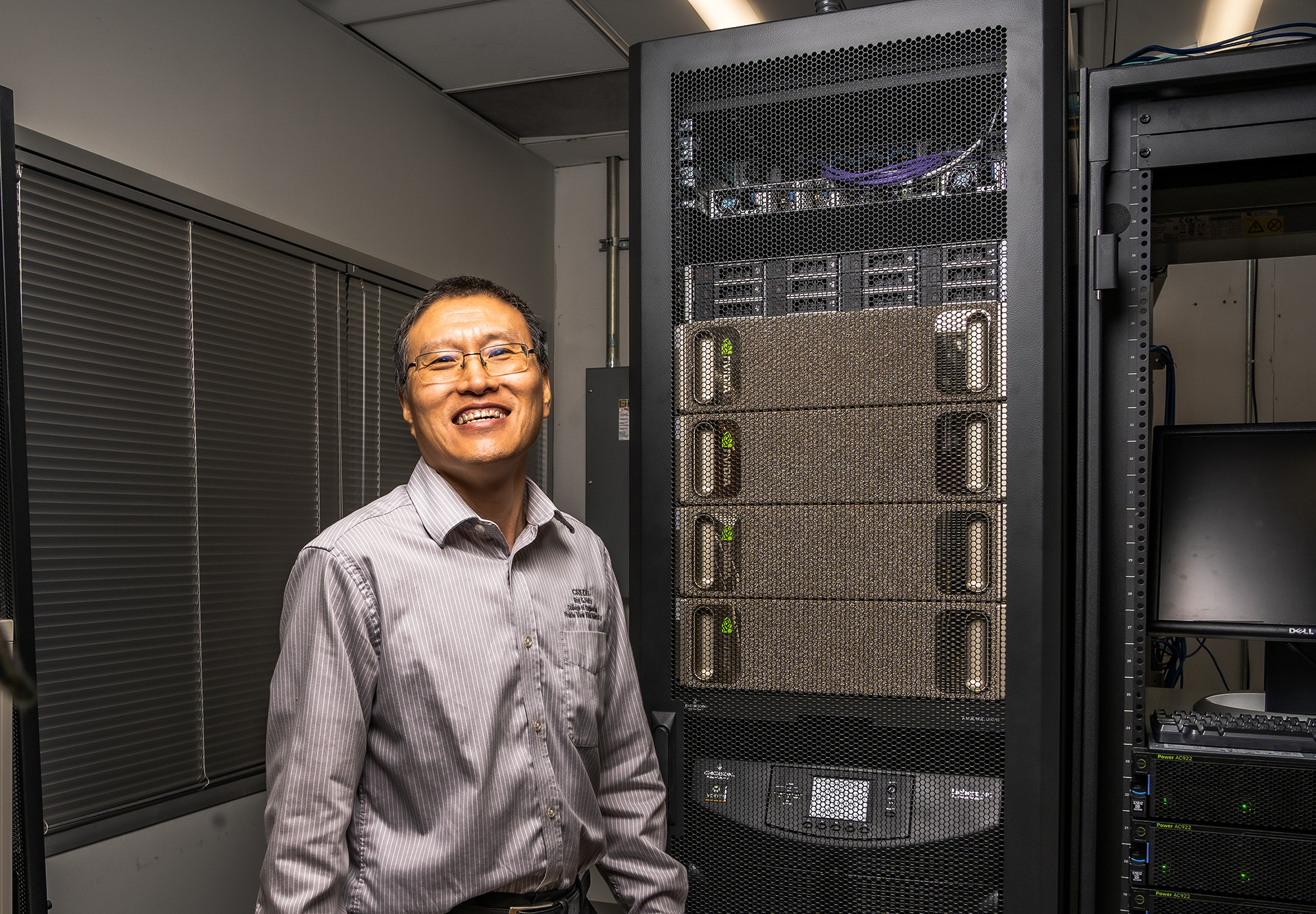Long before ChatGPT, there was AlexNet – the deep-learning solution named after its creator, Alex Krizhevsky.
It won the ImageNet Large Scale Visual Recognition Challenge 2012 and ensnared Lijun Qian, Ph.D., sparking his interest in the emerging field.
Now, Dr. Qian is the AT&T endowed professor of electrical and computer engineering at Prairie View A&M University. He is making his mark as the artificial intelligence race accelerates.
“The advancement of AI will change everyone’s life,” he said. “It is an understatement that AI is the new electricity.”
Qian recently led a PVAMU team to first place in the Naval Information Warfare Center’s national AI competition. The “Artificial Intelligence Tracks at Sea Challenge” competition used uncrewed surface vehicles to track and monitor maritime traffic to prevent collisions in the open sea.
“AI has the potential to revolutionize the way we approach business, education, and even the way we communicate with each other,” Qian said. “As such, the importance of AI in this digital age cannot be overstated, and it is essential that we continue to invest in its development to ensure that we are able to fully realize its potential.”
Qian is also the director of the Center of excellence in Research and Education for big military Data InTelligence (CREDIT) at PVAMU. It is a big data research hub with state-of-the-art technology that aims “to accelerate research and education in predictive analytics for science and engineering to transform our ability to effectively address and solve many complex problems posed by big data.”
“It is imperative for PVAMU to stay at the forefront of AI, big data research and education and train our students to be future leaders in these emerging fields.”

“It is imperative for PVAMU to stay at the forefront of AI, big data research and education and train our students to be future leaders in these emerging fields.”
It trains students “to become next-generation data scientists and engineers.”
Under Qian’s helm, the center was established in 2015 with $6 million in funding from the U.S. Department of Defense.
“The convergence of increased computing power, big data, and breakthroughs in artificial intelligence is transforming our lives,” Qian said. “It is imperative for PVAMU to stay at the forefront of AI and big data research and education and train our students to be future leaders in these emerging fields.”
Qian holds an M.S. in electrical engineering from Technion-Israel Institute of Technology and a Ph.D. from Rutgers University. He joined PVAMU in 2003 as a tenure-track assistant professor to help develop the University’s new electrical engineering Ph.D. program.
Before joining the University, Qian was a researcher at Bell Labs Research in New Jersey and a visiting professor at Aalto University in Finland. He has authored over 200 papers and holds three U.S. patents in 3G wireless communications from when he invented them at Bell Labs.
Qian is as dedicated to his students as he is to his research, taking pride in their accomplishments like they are his own.
An educator for 20 years, Qian’s favorite quote comes from William Butler Yeats: “Education is not the filling of a pail, but the lighting of a fire.”

